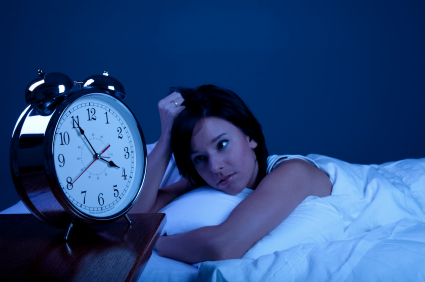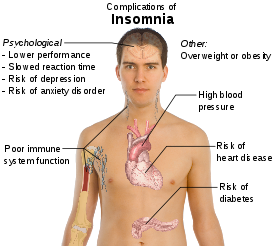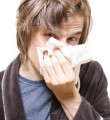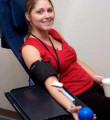15 Tips to Overcome Insomnia

RETINAL STIMULATION – make it a point to go outside and stimulate your retinas (eyes) for bout 15 minutes a day with sunlight. This “full on” light exposure can help restore your body’s natural sleep/night cycle, also known as the “circadian rhythm.” Looking straight into the sun is never a good idea, but being in an area where you receive the full brightness of the sun around you is what’s recommended.
NO NAPS – Avoid naps during the day. If you sleep during the day, your body may not be as tired as necessary to get to sleep at night.
COOL ROOM – Keep the temperature in your room cool and comfortable.
WAKING ACTIVITIES – Don’t participate in waking activities while in bed, like watching TV, eating, talking on the telephone, texting your friends, or using your laptop. Remember, bed has traditionally been for sleep. Train yourself to limit your bed-related activities, and your body will begin to associate your bed with sleepiness. Reading in bed is different. Reading can help you focus your mind, especially if what you read is boring. Save the murder mysteries for daytime and pick up a boring book for sleep. Reading in bed is an age-old trick for quickly getting to sleep.
GO TO BED AT REGULAR TIME – There’s no easy answer to the problem of being too tired during day-time and not tired enough at bed-time. Nonetheless, most experts agree that it is most helpful for you to go to bed at a regular, planned time. If you need to sleep more, it’s better for you to go to bed at your regular time and get up earlier. With time, your body should re-adjust and give you the hours you need. Be careful about driving or operating machinery when not fully rested, though. If you feel tired to the point of losing visual focus, you should definitely not be operating heavy machinery – no matter what. When not sleeping well for a period of time, ask someone else to drive you to work, if you can.

DON’T EXERCISE (<3 HOURS) – Don’t exercise within three hours of trying to fall asleep – this raises the heart rate. Slow stretching on the other hand might be just what the doctor ordered to get your body slowed down and feeling good.
DON’T EAT STIMULATING FOODS (<3 HOURS) – Don’t eat stimulating foods within three hours of trying to fall asleep – lying horizontally interrupts digestion and may cause heartburn. Also, eating high fat and carbohydrate foods might help make you groggy and help you fall asleep, but calorie-conscious people may need to weigh the benefits of such an approach to insomnia.
AVOID STIMULANTS (<2-3 hours) – Avoid all stimulants such as caffeinated and nicotine in cigarettes. Caffeinated products include coffee, tea, sodas, and especially colas. Even some aspirin or other headache remedies often contain caffeine! “Energy drinks”, Mountain Dew and a wide variety of other “energy bars” or supplements often contain a high amount of stimulating products. Check your vitamin and other supplements to make sure none of them are stimulating as well. (Look them up on an Internet search engine if you are unsure.) Check labels to see if products like aspirin are in any other product you take before bed. It is a surprise to many people to learn that even cigarettes can be stimulating when you are tired. Stay away from all these substances if you want a good night’s sleep.
AVOID LIQUIDS. (<2 HOURS) – many people are just simply drinking too many fluids before sleep. Parents with bedwetting children learn to curtail all liquids about 2 hours before sleep, thereby allowing the child’s body to void excess liquids about 30-60 minutes before actual bed-time. Well, adults have the same pattern of voiding as children. If liquids are taken before sleep, those liquids create an urgency to urinate that can awaken the adult. While that adult usually has enough bladder control to get to the bathroom, they often do not have the ability to get back to sleep. Stop drinking before sleep, and see if you stop waking up to urinate.
WIND DOWN (<90 MINS) – 90 minutes before you go to bed, wind own your day and don’t participate in anxiety-inducing activities like checking your mail, email or even watching the evening news.
WRITE DOWN CONCERNS (<30 MINS) – Spend a few minutes before bed at night writing down your concerns and stresses, then hopes or things you’re thankful for, so that you can give your mind a rest while you are sleeping.
CALMING MUSIC/SELF-HYPNOSIS – Listen to calming music, white noise, self-hypnosis or a “brain recalibration” tape for sleep. Such tapes are scientifically designed to help you “reset” your brain and calm down. When developed by researchers rather than marketers, they are remarkably effective. Just be sure to buy your brain recalibration audios from reputable sleep companies, and not slick marketing companies.
GET UP IF YOU CAN”T SLEEP – If you can’t fall asleep after 15-20 minutes get out of bed.
AVOID BRIGHT LIGHTS – if you wake up in the middle of the night and can’t get back to sleep within 30 minutes, get up but avoid as much light as possible. Light will only stimulate your brain’s day/night balance (circadian cycle). Avoid computer-based hypnosis programs just prior to going to bed for the same reason. The light emitted from a computer screen is intense. Any strong light is more likely to stimulate and wake your nervous system.
REDIRECT NIGHTMARES/BAD THOUGHTS – If you have a nightmare or stress-inducing thoughts, focus on a different ending. Write down your nightmare, or tell someone else about it to stop the continual thoughts.
You may also like to read:
Views :5427



